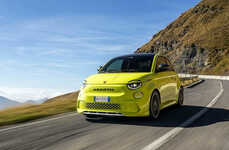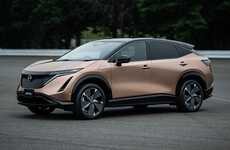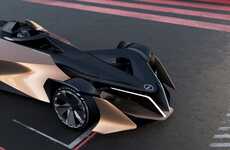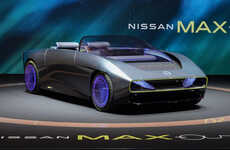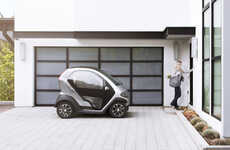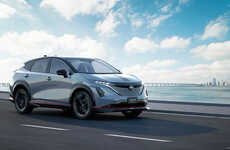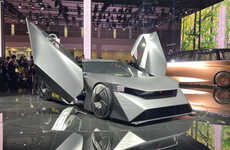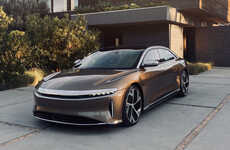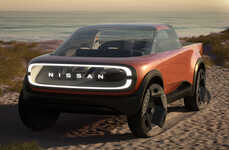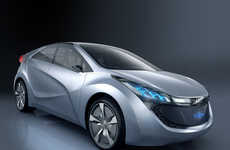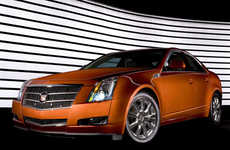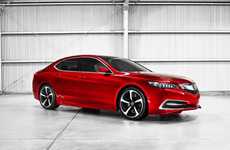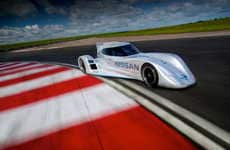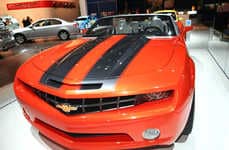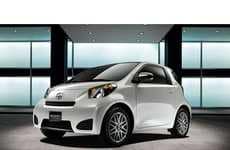
2010 Nissan Leaf Electric Car Delivers With Space & Speed
Marissa Brassfield — August 2, 2009 — Autos
References: autoblog & notcot.org
One of the misconceptions of all-electric cars is that they're toys that aren't intended for the rigors of daily driving; this is exactly the misconception that 2010 Nissan Leaf targets.
The 2010 Nissan Leaf is a five-door sedan that's built to seat five adults comfortably. The zero-emissions electric car has a range of about 100 miles, a top speed of over 87 MPH and the ability to be charged to 80% of capacity in under 30 minutes.
Best of all, perhaps, is the Nissan Leaf's design. Without resorting to cheesy cues that make the eco car look like a smiling bulbous marshmallow on wheels or an automobile out of "Back to the Future," the 2010 Nissan Leaf actually looks like a normal car.
The 2010 Nissan Leaf is a five-door sedan that's built to seat five adults comfortably. The zero-emissions electric car has a range of about 100 miles, a top speed of over 87 MPH and the ability to be charged to 80% of capacity in under 30 minutes.
Best of all, perhaps, is the Nissan Leaf's design. Without resorting to cheesy cues that make the eco car look like a smiling bulbous marshmallow on wheels or an automobile out of "Back to the Future," the 2010 Nissan Leaf actually looks like a normal car.
Trend Themes
1. Zero-emissions Cars - The trend of zero-emissions cars is disrupting the automotive industry, creating opportunities for innovation in battery technology, charging infrastructure, and design.
2. Mainstream Electric Vehicles - The trend of mainstream electric vehicles is disrupting the automotive industry, creating opportunities to improve driving range, charging speed, and affordability.
3. Designing for Sustainability - The trend of designing for sustainability is disrupting the automotive industry, creating opportunities to develop eco-friendly materials and production methods, as well as innovative vehicle designs.
Industry Implications
1. Automotive - The automotive industry is being disrupted by the trend of zero-emissions cars, which presents opportunities for innovation in battery technology, charging infrastructure, and design.
2. Energy - The energy industry is being disrupted by the trend of mainstream electric vehicles, which presents opportunities to develop faster charging technology and new renewable energy sources for vehicle charging.
3. Material Science - The material science industry is being disrupted by the trend of designing for sustainability, which presents opportunities to develop new eco-friendly materials and production methods for vehicle manufacturing.
2
Score
Popularity
Activity
Freshness

